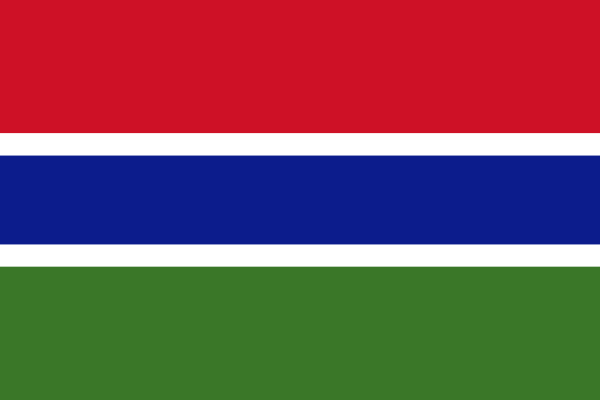
In an effort to revitalise Gambia’s flagging tourism sector, which has been decimated during the Covid-19 pandemic, the West African country is looking closer to home, and even at its own, to bolster the once-vibrant industry.
Beaches normally teeming with British and Dutch sunseekers are nearly empty, hawkers of fresh juice and souvenirs standing idle at Lemon Creek beach in Bijali.
The downturn has affected the informal sector as well, including beach bars, says Hassan Ndow, president of the Gambia Beach Bar Association.
“The beach bars were paralysed, they couldn’t move,” he tells RFI, adding that the recession in the country made life even worse.
“We’re seriously suffering because of Covid-19, and we’ve had no emergency funding,” he adds.
In a while, crocodile
National heritage site Kachikally Sacred Crocodile Pool in Bakau, considered the main tourist attraction in the Gambia, provides tourists with the chance to touch and pet wild crocodiles.
The giant reptiles are fed once a week, in accordance with their digestive system, and guides are on hand to ensure that visitors are safe while posing with and touching the unusually friendly creatures.
Custodian Dodou Bojang says that the small shops that lead into the area are trying to stay afloat, but some have already closed.
“We have 3 per cent of our normal total visitors,” says Bojang, adding that the small percentage is from local visitors who come to see the ethnographic museum on site.
“We are expecting things to be better, but with this new variant, it’s scary,” he says, referring to the Omicron form of the coronavirus.
At the crocodile pool, Ralph, a tourist from Maastricht, Netherlands, said that he was not worried about Covid, and was enjoying his time in the country.
One hotel owner in Serrekunda, who didn’t want to be identified, told RFI that Covid was killing the trade.
“All those tests cost money, added on to what tourists would be spending here, so they’re not coming,” she said, exasperated, motioning to a near-empty bar area.
Home-grown tourism
Gambia’s dependence on tourism has forced the industry to take a closer look at how to prevent this from happening again, as 15 per cent of the country’s GDP (2019) is tourism based.
“We have lost billions of dalassis in revenue, and over 200,000 jobs, directly and indirectly in the sector,” says Tourism Minister Hamat Bah.
The International Monetary Fund estimates nearly 20 per cent of all businesses folded during the pandemic downturn.
“The major impact is the closure of businesses – hotels, restaurants, bars, the list goes on – and it affects the suppliers, the value chain,” says Marion Nyang, executive secretary of the Gambia Hotel Association.
“Hoteliers have had a rough time since March 2020,” she adds.
Bah says the government has already pumped 100 million dalassis, or 1.7 million euros, back into the industry for the 2021-22 high season that runs from late December until April.
“Here in the Gambia, we have very loyal visitors that come to the country every year, and some come twice a year,” he says.
Although international tourism has virtually collapsed, the downtime during the Covid period has pushed the tourism industry to redesign how to attract Gambians themselves, as well as African tourists from neighbouring countries.
“We’re developing community-based histories and responsible tourism,” says Panneh Ngoneh, tourism programme officer at the International Trade Centre.
“We want to decentralise tourism so people go upriver, and local people can be supported,” she adds. If locals take control of the tourism in their area, they can create employment as well.
Lessons from overseas
Minister Bah says that they looked abroad to see how they could apply it at home.
“Throughout the world, including France, the only countries that restarted tourism quickly were those with a very strong domestic market, and Kenya is the leading country in Africa,” he says.
“We also want to try and develop a very strong domestic market – it will help to move the tourism sector forward,” he adds.
By luring African tourists from neighbouring countries, where travel restrictions are less invasive, the country hopes to bolster the industry.
The Hotel Association’s Nyang says that they believe Covid-19 is here to stay, so they are maintaining strict sanitary protocols in hotels to ensure the safety of the staff and visitors.
According to the Africa Center for Disease Control and Prevention, there were 11,000 Covid cases registered as of mid-January, a low number for a nearly two-year span.
“The Gambia is safe to travel to and our doors are open. We’re known for peace and tranquillity on the smiling coast of Africa,” says Nyang.

